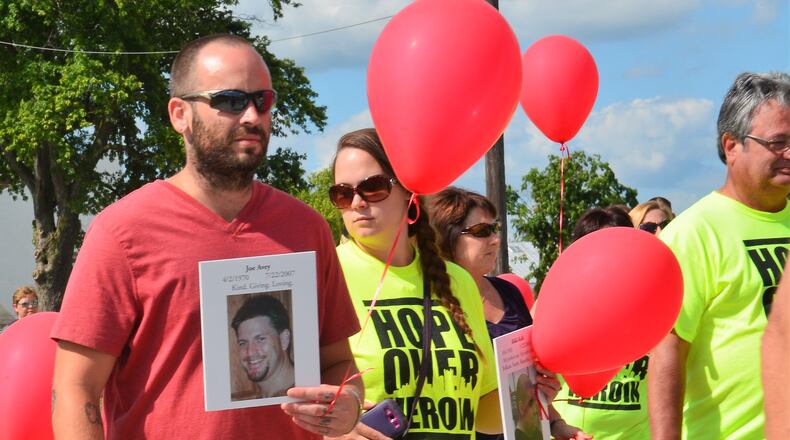But one area treatment specialist said the focus should instead be on getting help to those who need it.
“We know why (overdoses) are happening. There’s so many people addicted to heroin in our community and there needs to be more treatment resources available for them,” said Wendie Jackson, community outreach manager for Cornerstone Project, which runs multiple suboxone clinics in the area.
She said virtually every treatment program has a waiting list, and some of them are two weeks long.
Montgomery County had a record 355 confirmed or suspected overdose deaths in 2016. If the pace set in January continues, the county could witness 650 overdose deaths in 2017.
According to Kasich’s budget proposal, the overdose boards would operate much in the same way as the state’s child fatality review boards, which currently study each child death to find trends and make recommendations on how to improve local services and prevent deaths.
Montgomery County already has a number of groups fighting to curb overdose deaths, including the Montgomery County Drug-Free Coalition and the health department's Community Overdose Action Team.
The new law would give the review boards authority to see private documents like medical and drug treatment records in reviewing overdose deaths.
“We can’t get the medical records now. That would be a new source of data,” Suffoletto said.
As with the child fatality review boards, the private medical records reviewed in overdose deaths would remain confidential even though the work of government boards is generally open under public record laws.
This caveat has caused concern from open records advocates including the Ohio Newspaper Association.
The language in the law that authorizes child death review boards and the proposed language for overdose review boards is nearly identical. Both say all information presented to the board, statements made by committee members during meetings, and all work products of the board are not subject to public records law. The only public record is an annual report submitted to the state health department.
ODH says the language simply ensures that medical records can’t become public when reviewed by the board.
“Current public records will continue to be public records,” Kennedy said, including police and coroner’s reports. “The reason the work and discussions of the drug overdose fatality review committees are not public record is because of existing Ohio laws restricting access to confidential protected health information – which the committees’ work and discussions will contain.”
Dennis Hetzel, president and executive director of the ONA, said the language is broad and opens up the potential for the boards’ operations to be kept secret. He’s asked ODH to rewrite the law, “to be more explicit that it protects specific patient identifying information… and that it wouldn’t exclude records that are more general in nature.”
About the Author
